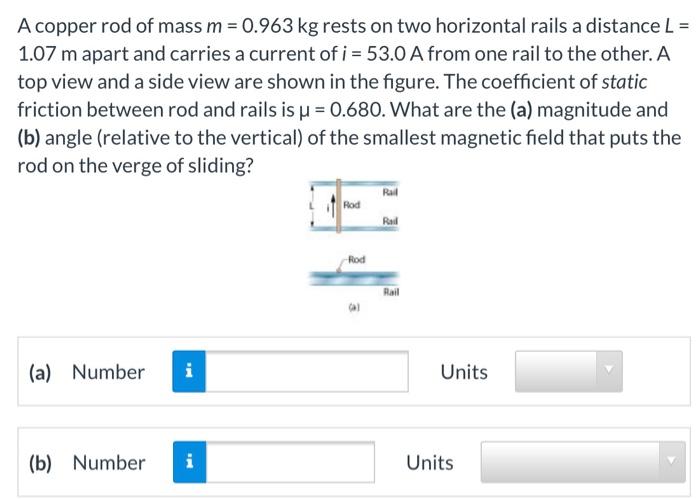A copper rod of mass m = 0.963 kg rests on two horizontal rails a distance L = 1.07 m apart and carries a current of i = 53.0 A from one rail to the other. A top view and a side view are shown in the figure. The coefficient of static friction between rod and rails is μ = 0.680. What are the (a) magnitude and (b) angle (relative to the vertical) of the smallest magnetic field that puts the rod on the verge of sliding? (a) Number Units (b) Number Units
